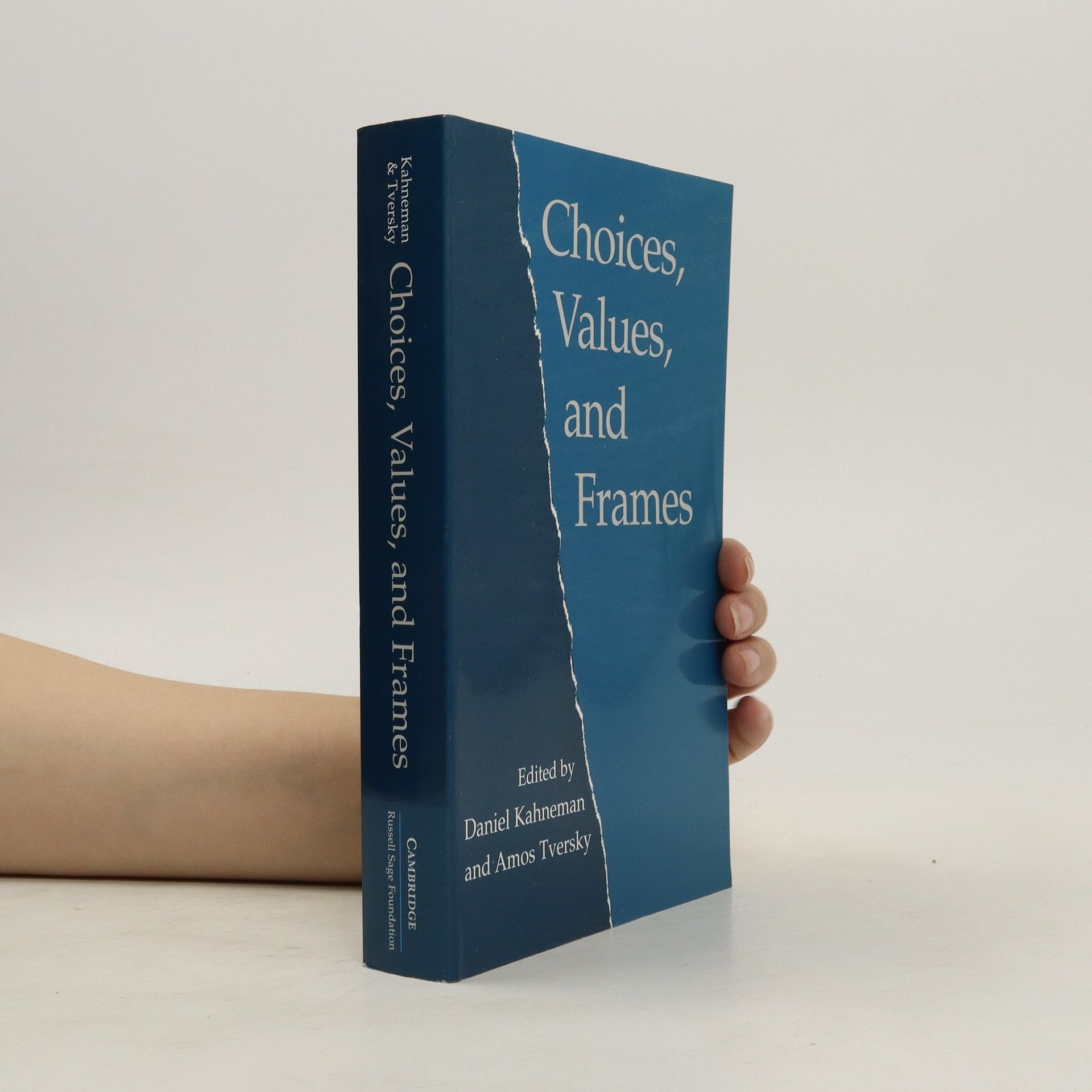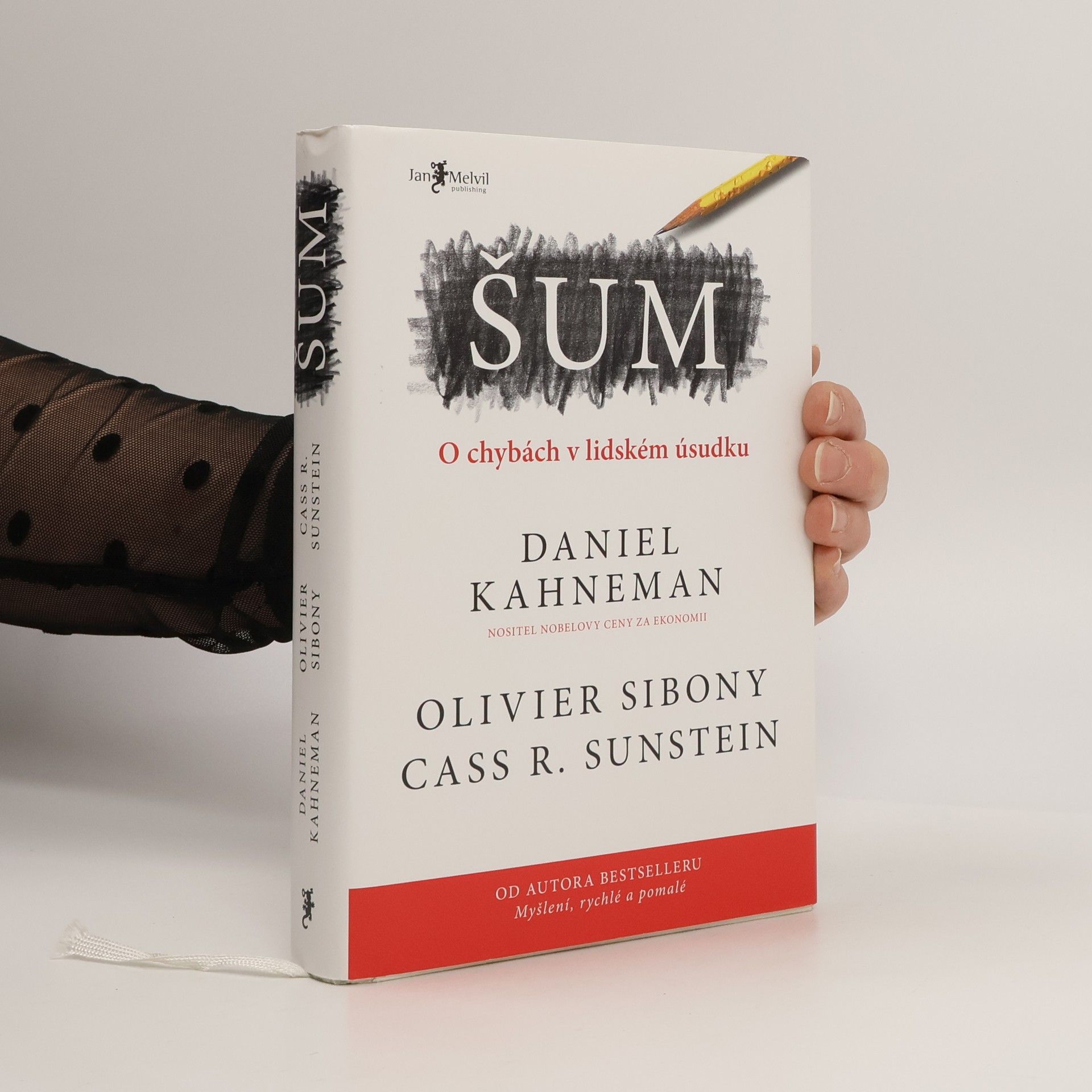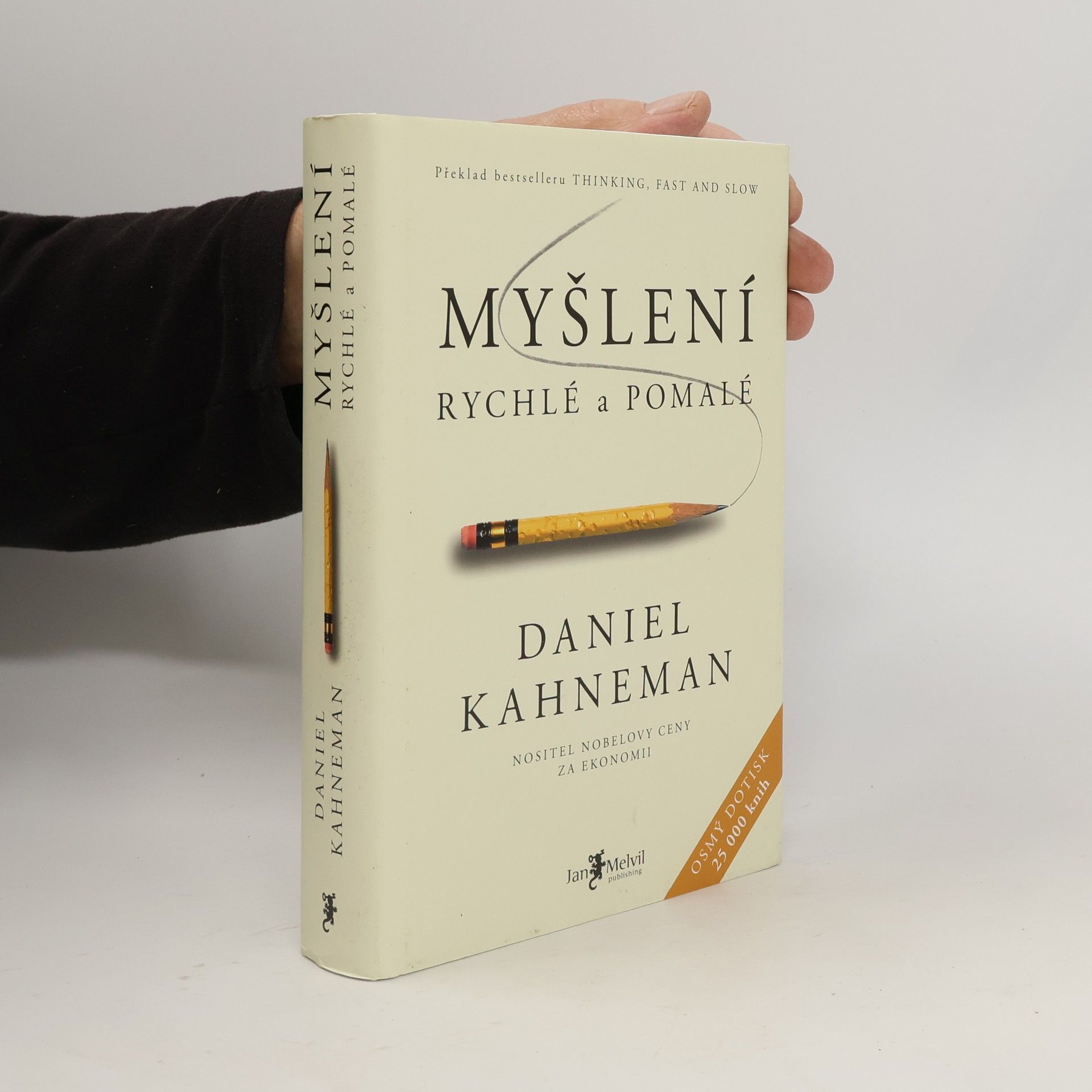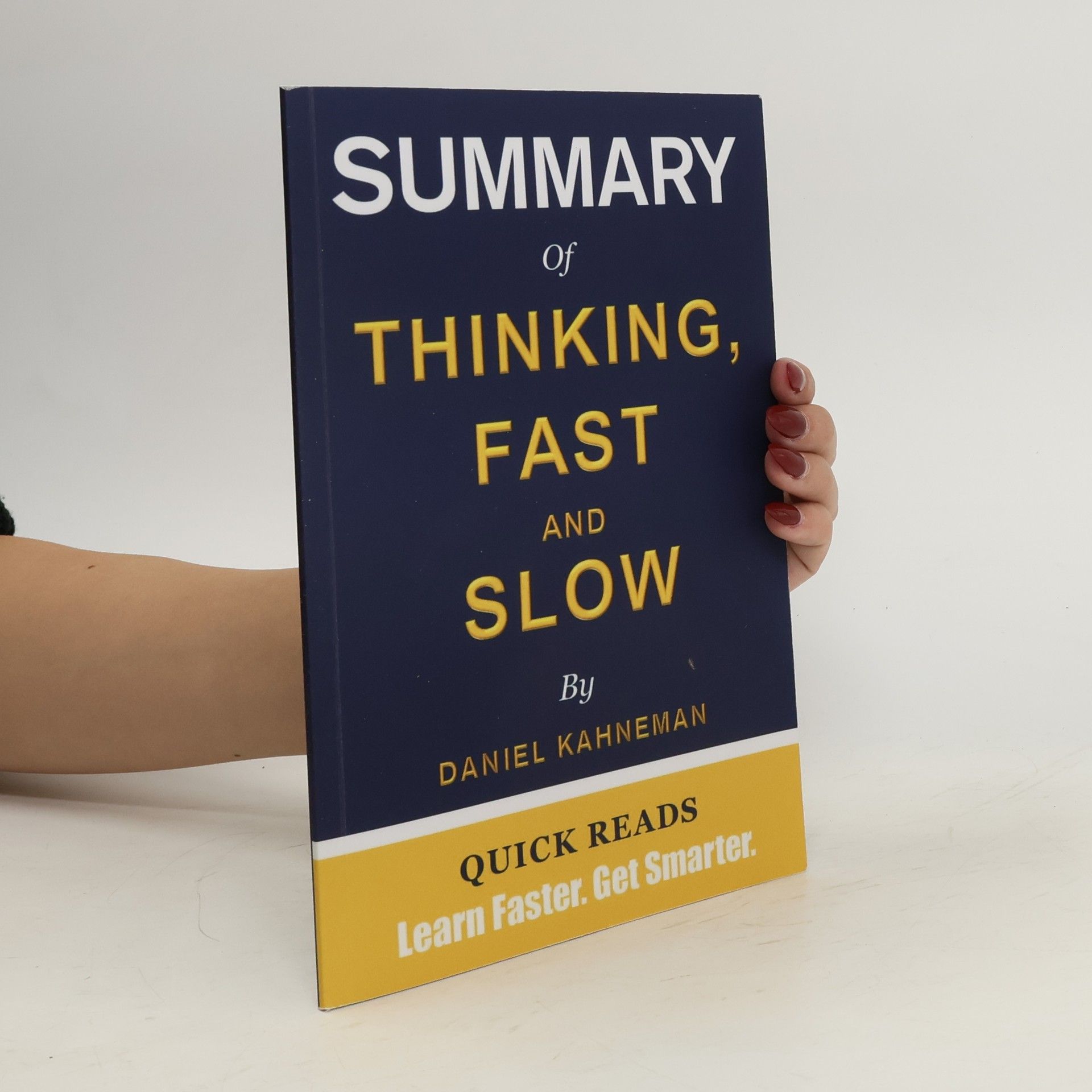Daniel Kahneman, psycholog, držitel Nobelovy ceny za ekonomii, nás v průlomové práci, označované Nassimem Talebem za stejně významné dílo, jakým byl kdysi Freudův „Výklad snů“, seznamuje se dvěma systémy, které řídí to, jak přemýšlíme a jak se rozhodujeme. Systém 1 je rychlý, intuitivní a emocionální. Systém 2 je pomalý, váhavý a logický. Poutavý průvodce myslí nás ve čtivé knize vtahuje do dialogu o tom, jak přemýšlíme, a přitom odhaluje, v kterých situacích můžeme a kdy naopak nesmíme věřit své intuici (Systém 1) a také kdy a jak čerpat z přínosu pomalého myšlení (Systém 2). Nabízí praktické i poučné poznatky o tom, jak vznikají naše rozhodnutí v pracovním i osobním životě – a hlavně návod na to, jak se vyvarovat chyb.
Daniel Kahneman Knihy
Daniel Kahneman byl izraelsko-americký psycholog, jehož práce se zaměřuje na kognitivní procesy ovlivňující lidské rozhodování. Společně s Amosem Tverskym položil základy pro pochopení běžných lidských chyb, jako jsou heuristiky a zkreslení. Kahneman detailně zkoumal, jakým způsobem lidé vnímají riziko a přínosy, a vyvinul klíčovou teorii vyhlídek. Jeho výzkum zásadně přispěl k oboru behaviorální ekonomie a psychologie tím, že poskytl hlubší vhled do racionality a iracionality lidské mysli.







Kahneman s kolegy analyzoval stovky studií týkajících se rozhodování a ve svém společném díle vás přesvědčí, že i když máme tendenci své mentální schopnosti přeceňovat, jsme jako lidé velmi omylní. I model nás samých činí přesnější úsudky než my! Což není naší chybou, spíše přirozeností kauzálního myšlení a složitostí světa, chybou by však bylo ignorovat protiopatření. V knize vám hvězdný tým autorů vysvětlí příčiny vzniku šumu, jeho kategorie, odliší jej od zkreslení, naučí měřit jeho vliv, ale především ukáže, jak s těmito zjištěními naložit v praxi. Tedy jaké kroky po auditu šumu v rámci šesti pravidel rozhodovací hygieny podniknout. Pro lepší, spravedlivější, méně zašuměný svět.
Heuristics and Biases : The Psychology of Intuitive Judgment
- 874 stránek
- 31 hodin čtení
Judgment pervades human experience. Do I have a strong enough case to go to trial? Will the Fed change interest rates? Can I trust this person? This book examines how people answer such questions. How do people cope with the complexities of the world economy, the uncertain behavior of friends and adversaries, or their own changing tastes and personalities? When are people's judgments prone to bias, and what is responsible for their biases? This book compiles psychologists' best attempts to answer these important questions.
The Importance of the Community Rabbi
- 367 stránek
- 13 hodin čtení
The contemporary rabbi is influenced by the modern rabbinic establishments throughout the world, including the rabbinate in Israel. The rabbinate's monopoly on opinions and interpretations prevents rabbis from expressing their individual positions out of fear of delegitimization. The current structure gives the public a negative impression of the rabbinic establishment. The Importance of the Community Rabbi strives to describe and delineate key requirements for a good rabbi, i.e., one who can provide socially acceptable halachic solutions within the parameters of Orthodox thinking. Rabbi Sperber elucidates the halachic techniques and mechanisms that may be used toward this goal. These are further illustrated with stories from rabbinic literature and examples from various responsa.
Instaread Summaries: Thinking, Fast and Slow by Daniel Kahneman - A 30-Minute Summary
- 108 stránek
- 4 hodiny čtení
With Instaread Summaries, you can get the summary of a book in 30 minutes or less. We read every chapter, summarize and analyze it for your convenience. This is an Instaread Summary of Thinking, Fast and Slow by Daniel Kahneman. Below is a preview of the earlier sections of the summary: In this book, Daniel Kahneman aims to identify and understand errors of judgment and choice, providing a richer vocabulary to discuss these issues. Collaborating with Amos Tversky, they researched intuitive statistics and realized their own intuitions were flawed. Their subjective judgments were biased, leading them to accept research findings based on insufficient evidence and to gather too few observations in their studies. They sought to determine if other researchers faced similar challenges. Their findings revealed that participants often ignored relevant statistical facts, relying instead on resemblance as a heuristic to simplify complex judgments. This reliance led to predictable biases in their predictions. They discovered that people assess the importance of issues based on how easily they can recall them, largely influenced by media coverage. Kahneman offers insights into how the mind operates, highlighting the distinctions between fast (intuitive) and slow (deliberate) thinking. He emphasizes a common limitation: an excessive confidence in what individuals believe they know.
Choices, Values, and Frames
- 860 stránek
- 31 hodin čtení
Choices, Values, and Frames presents an empirical and theoretical challenge to classical utility theory, offering prospect theory as an alternative framework. Extensions and applications to diverse economic phenomena and to studies of consumer behavior are discussed. The book also elaborates on framing effects and other demonstrations that preferences are constructed in context, and it develops new approaches to the standard view of choice-based utility. As with the classic 1982 volume, Judgment Under Uncertainty, this volume is comprised of papers published in diverse academic journals. The editors have written several new chapters and a preface to provide a context for the work.
Sociálna inteligencia
- 208 stránek
- 8 hodin čtení
Aký rozdiel je medzi prirodzeným (intuitívnym) a formálno-logickým usudzovaním? Sú všetky logické chyby zlé? Aké postupy (heuristiky) používa intuitívne usudzovanie? Prečo sú hybnou silou rozvoja intelektu sociálne vzťahy? Aké komunikačné riziká sú spojené s informáciami získanými prostredníctvom svedectva? Na základe čoho vieme odhadnúť, čo sa deje v mysli iného? Prečo sa etnické klasifikácie zásadne líšia od iných sociálnych klasifikácií, napríklad profesijných či športových? Práve na tieto otázky hľadajú odpovede autori knihy Sociálna inteligencia. Prvú časť knihy tvoria preklady prác renomovaných zahraničných autorov (D. Kahneman, G. Gigerenzer, N. Humphrey a D. Sperber). Druhá časť knihy obsahuje príspevky domácich autorov (J. Bašnáková, M. Filko, M. Kanovský, V. Kvasnička, E. Pauková, J. Pospíchal a J. Rybár). Sme presvedčení, že kniha môže pomôcť vedeckým pracovníkom a študentom počítačovej vedy, psychológie, antropológie, ekonómie a ďalších prírodných a sociálnych vied zorientovať sa v danej oblasti. Dúfame, že poslúži aj všetkým, ktorí sa chcú bližšie oboznámiť so súvislosťami medzi intuitívnym usudzovaním a sociálnou inteligenciou.
Мышление. Myshleniye
- 480 stránek
- 17 hodin čtení
Наши действия и поступки определены нашими мыслями. Но всегда ли мы контролируем наше мышление? Нобелевский лауреат Даниэль Канеман объясняет, почему мы подчас совершаем нерациональные поступки и как мы принимаем неверные решения. У нас имеется две системы мышления. «Медленное» мышление включается, когда мы решаем задачу или выбираем товар в магазине. Обычно нам кажется, что мы уверенно контролируем эти процессы, но не будем забывать, что позади нашего сознания в фоновом режиме постоянно работает «быстрое» мышление – автоматическое, мгновенное и неосознаваемое…


